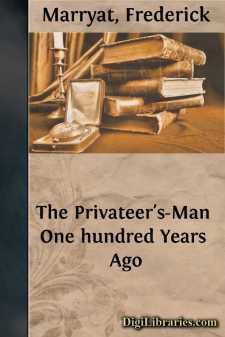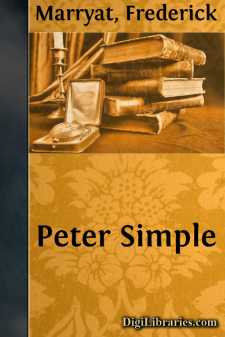Categories
- Antiques & Collectibles 13
- Architecture 36
- Art 48
- Bibles 22
- Biography & Autobiography 813
- Body, Mind & Spirit 142
- Business & Economics 28
- Children's Books 17
- Children's Fiction 14
- Computers 4
- Cooking 94
- Crafts & Hobbies 4
- Drama 346
- Education 46
- Family & Relationships 57
- Fiction 11829
- Games 19
- Gardening 17
- Health & Fitness 34
- History 1377
- House & Home 1
- Humor 147
- Juvenile Fiction 1873
- Juvenile Nonfiction 202
- Language Arts & Disciplines 88
- Law 16
- Literary Collections 686
- Literary Criticism 179
- Mathematics 13
- Medical 41
- Music 40
- Nature 179
- Non-Classifiable 1768
- Performing Arts 7
- Periodicals 1453
- Philosophy 64
- Photography 2
- Poetry 896
- Political Science 203
- Psychology 42
- Reference 154
- Religion 513
- Science 126
- Self-Help 84
- Social Science 81
- Sports & Recreation 34
- Study Aids 3
- Technology & Engineering 59
- Transportation 23
- Travel 463
- True Crime 29
The Settlers in Canada
Description:
Excerpt
CHAPTER I.
It was in the year 1794, that an English family went out to settle in Canada. This province had been surrendered to us by the French, who first colonized it, more than thirty years previous to the year I have mentioned. It must, however, be recollected, that to emigrate and settle in Canada was, at that time, a very different affair to what it is now. The difficulty of transport, and the dangers incurred, were much greater, for there were no steamboats to stem the currents and the rapids of the rivers; the Indians were still residing in Upper and many portions of Lower Canada, and the country was infested with wild animals of every description—some useful, but many dangerous: moreover, the Europeans were fewer in number, and the major portion of them were French, who were not pleased at the country having been conquered by the English. It is true that a great many English settlers had arrived, and had settled upon different farms; but as the French settlers had already possession of all the best land in Lower Canada, these new settlers were obliged to go into or toward Upper Canada, where, although the land was better, the distance from Quebec and Montreal, and other populous parts, was much greater, and they were left almost wholly to their own resources, and almost without protection. I mention all this, because things are so very different at present: and now I shall state the cause which induced this family to leave their home, and run the risk and dangers which they did.
Mr. Campbell was of a good parentage, but, being the son of one of the younger branches of the family, his father was not rich, and Mr. Campbell was, of course, brought up to a profession. Mr. Campbell chose that of a surgeon; and after having walked the hospitals (as it is termed), he set up in business and in a few years was considered as a very able man in his profession. His practice increased very fast; and before he was thirty years of age he married.
Mr. Campbell had an only sister, who resided with him, for their father and mother were both dead. But about five years after his own marriage, a young gentleman paid his addresses to her; and although not rich, as his character was unexceptionable, and his prospects good, he was accepted. Miss Campbell changed her name to Percival, and left her brother's house to follow her husband.
Time passed quickly; and, at the end of ten years, Mr. Campbell found himself with a flourishing business, and at the same time with a family to support, his wife having presented him with four boys, of whom the youngest was but a few months old.
But, although prosperous in his own affairs, one heavy misfortune fell upon Mr. Campbell, which was the loss of his sister, Mrs. Percival, to whom he was most sincerely attached. Her loss was attended with circumstances which rendered it more painful, as, previous to her decease, the house of business in which Mr. Percival was a partner failed; and the incessant toil and anxiety which Mr. Percival underwent brought on a violent fever, which ended in his death. In this state of distress, left a widow with one child of two years old—a little girl—and with the expectation of being shortly again confined, Mrs. Percival was brought to her brother's house, who, with his wife, did all he could to soften down her grief; but she had suffered so much by the loss of her husband, that when the period arrived, her strength was gone, and she died in giving birth to a second daughter. Mr. and Mrs. Campbell, of course, took charge of these two little orphan girls, and brought them up with their own children.
Such was the state of affairs about ten or eleven years after Mr. Campbell's marriage, when a circumstance occurred as unexpected as it was welcome.
Mr. Campbell had returned from his round of professional visits; dinner was over, and he was sitting at the table with his wife and elder children (for it was the Christmas holidays, and they were all at home), and the bell had just rung for the nurse to bring down the two little girls and the youngest boy, when the postman rapped at the door, and the parlor-maid brought in a letter with a large black seal. Mr. Campbell opened it, and read as follows:—
Sir—We have great pleasure in making known to you, that upon the demise of Mr. Sholto Campbell, of Wexton Hall, Cumberland, which took place on the 19th ultimo, the entailed estates, in default of more direct issue, have fallen to you, as nearest of kin; the presumptive heir having perished at sea, or in the East Indies, and not having been heard of for twenty-five years....












